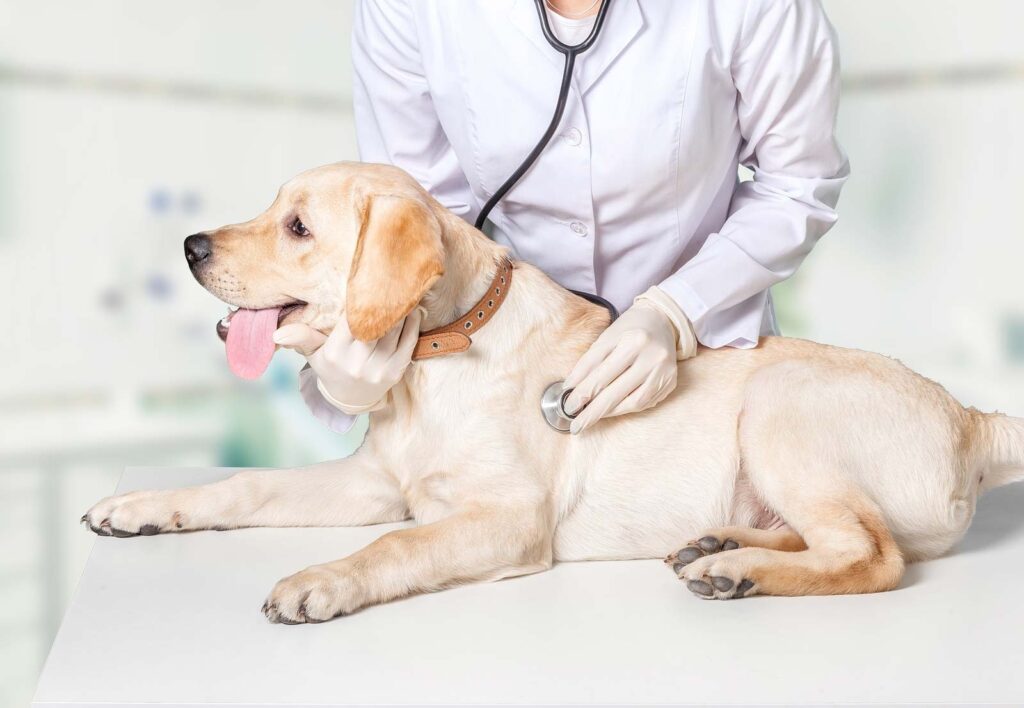
Ensuring your dog’s health goes far beyond daily feeding and exercise. Regular veterinary checkups are a cornerstone of responsible pet ownership. Just like humans, dogs require routine medical care to catch potential health issues early, prevent disease, and maintain a high quality of life. Let’s explore why health checkups are essential for your canine companion.
1. Early Detection of Health Issues
Dogs often hide signs of illness, and many conditions may not show noticeable symptoms until they’ve progressed. Regular health checkups allow veterinarians to identify potential problems early on:
- Chronic Diseases: Conditions like arthritis, diabetes, and kidney disease are easier to manage when detected early.
- Parasites: Fleas, ticks, and intestinal worms can be detected and treated before they cause significant discomfort or health risks.
- Cancer: Early detection of tumors or abnormal growths can significantly improve the chances of successful treatment.
2. Preventive Care
Routine vet visits are essential for preventive care, ensuring your dog remains protected from avoidable health problems:
- Vaccinations: Core and non-core vaccines protect your dog from deadly diseases like rabies, parvovirus, and distemper.
- Parasite Prevention: Regular checkups include preventive measures against fleas, ticks, and heartworms, which can cause severe health complications if left untreated.
- Dental Cleanings: Oral health is a critical part of preventive care. Dental checkups and cleanings help avoid gum disease, tooth loss, and the spread of bacteria to vital organs.
3. Monitoring Overall Health
Veterinary checkups provide a comprehensive view of your dog’s overall health:
- Weight Management: Obesity is a common issue in dogs, leading to joint problems, heart disease, and reduced lifespan. Regular weigh-ins help ensure your dog maintains a healthy weight.
- Nutritional Guidance: Vets can provide advice on diet and supplements tailored to your dog’s breed, age, and health conditions.
- Behavioral Observations: Subtle changes in behavior, such as lethargy or irritability, can indicate underlying health issues that a vet can address.
4. Tailored Care for Different Life Stages
Dogs have unique healthcare needs at different stages of life:
- Puppies: Puppies require frequent checkups for vaccinations, deworming, and developmental monitoring. Early visits also help establish good habits and socialization.
- Adult Dogs: Adult dogs benefit from annual checkups to monitor their health, update vaccinations, and address any emerging issues.
- Senior Dogs: Older dogs may need biannual checkups to monitor age-related conditions like arthritis, vision loss, or organ function decline.
5. Reproductive Health
For unspayed or unneutered dogs, regular health checks are vital for monitoring reproductive health:
- Pregnancy Monitoring: Ensures a healthy pregnancy and delivery.
- Preventing Infections: Spaying or neutering not only controls population but also prevents serious conditions like uterine infections and testicular cancer.
6. Building a Veterinary Relationship
Establishing a strong relationship with your veterinarian ensures your dog receives consistent, high-quality care. Over time, your vet becomes familiar with your dog’s health history, behavior, and specific needs, making it easier to provide tailored advice and treatments.
7. Common Procedures During a Checkup
A typical veterinary checkup includes:
- Physical Examination: Evaluation of eyes, ears, skin, coat, teeth, and weight.
- Blood Tests: Screening for infections, organ function, and chronic diseases.
- Fecal Examination: Checking for parasites or abnormal bacteria.
- Heart and Lung Monitoring: Listening for irregularities that could indicate conditions like heart disease.
- Vaccination Updates: Administering boosters for core and non-core vaccines.
8. Signs Your Dog Needs Immediate Medical Attention
While regular checkups are vital, some signs require immediate veterinary attention:
- Sudden weight loss or gain.
- Changes in appetite or drinking habits.
- Vomiting or diarrhea that lasts more than 24 hours.
- Difficulty breathing or persistent coughing.
- Lethargy, limping, or visible pain.
9. The Cost of Neglecting Regular Checkups
Skipping regular vet visits can lead to higher costs and greater suffering in the long run. Treating advanced illnesses is often more expensive and less effective than addressing them early. Preventive care and routine checkups are an investment in your dog’s health and happiness.
10. How Often Should You Schedule a Checkup?
- Puppies: Every 3-4 weeks until they are about 16 weeks old.
- Adult Dogs: At least once a year for a general wellness exam.
- Senior Dogs: Every 6 months to closely monitor aging-related issues.
Conclusion
Health checkups are a cornerstone of proactive dog care, allowing you to catch potential health problems early, provide preventive treatments, and ensure your dog’s overall wellbeing. By prioritizing regular veterinary visits, you can enjoy more years of companionship with your beloved pet and give them the happy, healthy life they deserve. Remember, a healthy dog is a happy dog!

